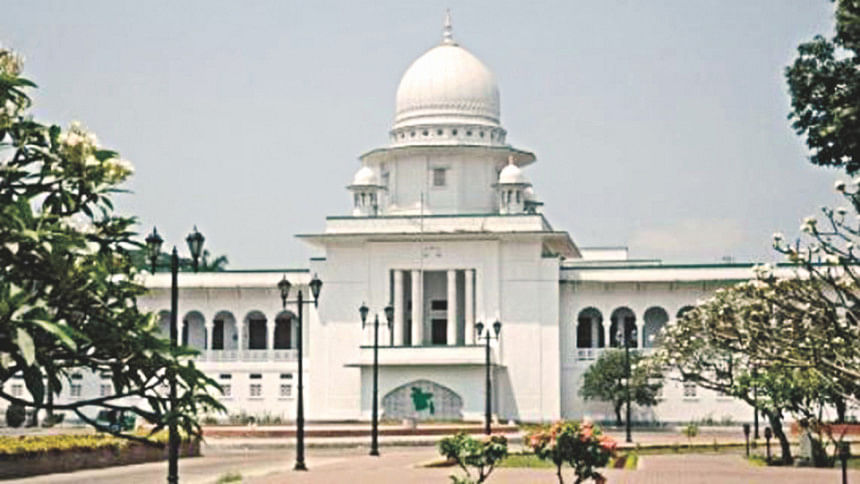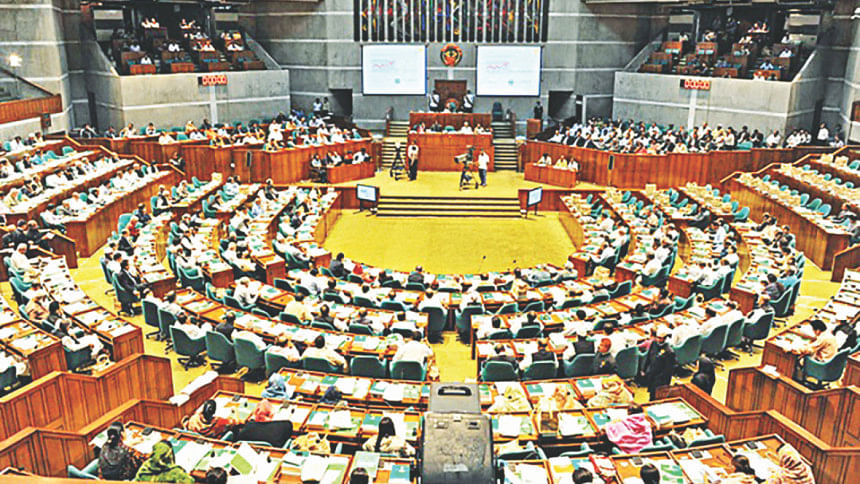On the 16th constitutional amendment verdict - for and against

Hon'ble Chief Justice made it clear that unlike what is alleged, the judiciary is not beyond scrutiny and supervision. He said that apart from institutional accountability in respect of first instance and appellate decisions, individual Judges are accountable to the public in the sense that in general their decisions are made in public and are discussed in the media and by sections of the people affected by those decisions (p. 257). Since the Chief Justice has opined to this effect, in furtherance of the extra-institutional accountability he mentioned about, this endeavour is to analytically 'discuss' only a few 'immensely complex and unfathomably deep issues' of the judgment.
One of the basic arguments, as expected, on behalf of the State was that the procedure for removal of the Judges is absolutely a policy decision which is within the domain of the Parliament (p. 14). The Court answered this issue by saying, exactly as expected, that since the said policy has interfered with the independence of judiciary and thereby is in violation of some provisions of the constitution, the court can certainly intervene in the matter.
Another argument on part of the State was that the Constitution cannot retain a provision inserted in a martial law regime. In response Chief Justice mentioned that the parliament has retained Articles 2A, 42, 47, 6(2) which got changed in martial law regimes from what it was in the 1972 constitution. Here arises an open ended question regarding whether previous retention of amendments made in one martial law regime can be a ground for validating amendments made in different military regime(s). However, the retention at hand was justified saying that in content and spirit the provision of Supreme Judicial Council (SJC) is absolutely in harmony with the scheme of the constitution (p. 144 per Chief Justice) and by Fifteenth Amendment, the Parliament provided this provision, in wordings similar to as it was done in a martial law regime, by way of substitution. Since it was newly enacted, even though verbatim, by a democratic parliament and not an 'usurper', there was no problem in its retention (p. 665 per Justice Hasan Foez Siddique).
Basically the unanimous decision of not vesting the removal mechanisms of judges upon the parliament, was made, keeping the, as the Chief Justice termed it, 'myopic politicisation' of our country in mind (p. 55). However, the reasoning based on the long-existing debate surrounding Article 70 (p. 86) was more 'legally' understandable than blaming the political culture as a 'rotting disease' (p. 54) straightaway.

The Supreme Court, while scrapping the 13th constitutional amendment, said that parliamentary elections may be held under caretaker system subject to the condition that the chief advisor shouldn't be from among the last retired chief justice or any of the retired judges of the AD. The idea was to prevent politicisation and ensure impartiality (reiterated in the 16th amendment judgment, p. 203). Politicisation is not something asymmetrical and it requires involvement from both the ends. And removal of judges requires impartiality no less than that required in a caretaker system.
The judgment basically viewed individual accountability of judges as being complementary to independence of judiciary and the 16th amendment as contravening Article 7B as well as the basic structure (judicial independence) of the Constitution. Interestingly, violation of another basic structure (namely, separation of powers) was pleaded by the State.
According to the Appellate Division, the judiciary is the only relatively independent organ of the State which is striving to keep its nose above the water though sinking (p. 229) and hence they were vested, as the 'independent and impartial body' for 'fairly and objectively' administering the disciplinary proceeding against judges in accordance with Commonwealth Latimar House Principles.
However, the Appellate Division also admitted that Judges being human, do make mistakes and in the Chief Justice's view, those mistakes may be rectified through several layers of appeal and review (p. 243). Unfortunately, to my understanding, such institutional checks for rectifying mistakes are not there in case of a decision made by the SJC.
Justice Hasan Foez Siddique categorically expressed his concern over the SJC and its disciplinary proceedings. He relied on the book “Independence and Accountability of Judiciary: A Critical Review” by Dr. Sarkar Ali Akkas. In light of the book, according to Article 96 (as it stood after 15th amendment), the President may receive information about the incapacity or misconduct of a judge from the SJC or from 'any other source'. There is no guideline as to what sources, as credible ones, will make their way to the president. In absence of a proper procedure of filing complaints, it may not be possible for an ordinary citizen to inform the President about the incapacity or misconduct of a judge.
According to him, as the only potential source of information, SJC has a dilemma to deal with in terms of filing complaints against fellow judges for being exclusively composed of judges (p. 744 per Justice Hasan Foez Siddique). While speaking for SJC, Chief Justice gave references of Bulgarian and Namibian provisions. However, it is to be noted that according to both these countries' constitutions, the respective bodies vested with identical responsibilities like SJC, do not consist exclusively of judges.
The judges drew a comprehensibly distinct line between parliamentary sovereignty in a country with unwritten constitution (United Kingdom) and the same in a country with a written constitution (Bangladesh) with explanation (amongst others, p. 559, per Justice M. Imman Ali). Jurisprudentially, thus, the concept of separation of powers was shown to be working differently in our context and this is how the argument regarding vesting the removal mechanism upon the will of the people through the elected representatives was dealt with.
For a layman, the judgment scrapped the 16th amendment and dismissed the appeal made by the Government. To put it in extra-legal words - 16th constitutional amendment dies, the Supreme Judicial Council survives.
The writer works with Law desk, the daily star.

 For all latest news, follow The Daily Star's Google News channel.
For all latest news, follow The Daily Star's Google News channel. 



Comments